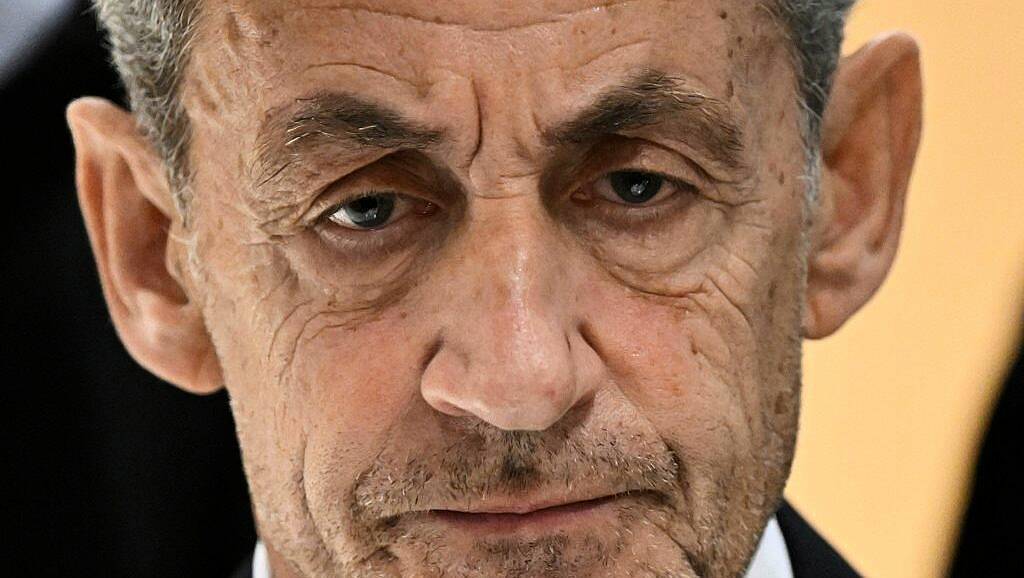Former President Nicolas Sarkozy’s prison sentence has deepened divisions in France over the judiciary’s handling of political wrongdoing, just months before far-right leader Marine Le Pen attempts to overturn her own embezzlement conviction and run for the highest office.
A Paris court shook the political landscape on Thursday by handing Sarkozy a five-year sentence for criminal conspiracy related to attempts to raise campaign funds from Libya. If enforced, he will become the first post-war French president to be imprisoned.
Ludovic Friat, president of the USM—the largest union representing French prosecutors and judges—said the ruling demonstrated that no one is above the law, even if some question the court’s motivations.
“There will clearly be a before and after this decision,” Friat said. “In high-profile political-financial trials, some inevitably see judges stepping onto the political stage. What I regret is that too often, this becomes a smokescreen that diverts attention from the offences actually committed.”
### Judges Cracking Down on Political Wrongdoing
As Sarkozy left the courtroom, he reiterated his innocence and warned that the ruling could undermine faith in France’s judiciary.
“What happened today is of extreme gravity in regard to the rule of law, and for the trust one can have in the justice system,” he stated.
Sarkozy’s prison sentence is enforceable immediately. The former president has been given a short period to settle his affairs but is not allowed to postpone imprisonment pending appeal, unlike some politicians in the past.
Because appeals can take years and often fuel a sense of impunity among the powerful, judges are increasingly issuing “provisional execution” sentences that take effect immediately, according to lawyers and politicians speaking with Reuters.
“For several decades, there has been a growing democratic demand for integrity among elected officials,” said Judith Allenbach, president of another judicial union. She added that 89 percent of jail terms longer than two years are enforced before any appeals and that judges are applying laws passed by parliament imposing tougher penalties for such crimes.
The deep tensions surrounding these cases were evident when the Paris prosecutor’s office announced on Saturday that it had opened investigations into threatening messages directed at the lead judge who ruled on Sarkozy’s case. Earlier this year, the lead judge in Marine Le Pen’s conviction also faced threats and was placed under police protection.
### What Does It Mean for Marine Le Pen?
Marine Le Pen, leader of the far-right National Rally (RN) party, was handed a “provisional execution” sentence in March after being convicted of embezzling EU funds. She received a five-year political ban barring her from running in the 2027 presidential election.
Le Pen’s January appeal will determine whether she is eligible to run in 2027. She criticized Sarkozy’s conviction, saying the growing use of provisional executions by some courts “represents a great danger.”
Judicial sources have said the cases of Le Pen and Sarkozy are distinct, and it is impossible to predict how one ruling might affect the other.
Friat said Sarkozy’s conviction showed judges remain steadfast in combating political crime. “I can understand her concern,” he said of Le Pen, while stressing he could not speculate on the appeals court’s eventual decision.
Le Pen’s supporters argue that right-wing politicians face harsher judicial treatment, citing the case of former centrist Prime Minister François Bayrou, who was acquitted last year over allegations of EU fund misuse.
Le Pen’s situation has also drawn international attention. U.S. President Donald Trump called her a victim of “lawfare” and sent a diplomatic delegation to offer support.
### Calls for Judicial Reform and Political Reactions
Brigitte Barèges, a right-wing former mayor convicted of embezzlement in 2021 and given a five-year political ban with provisional execution—only to be acquitted on appeal—commented on the current climate.
“What we see today is that the justice system or at least a part of it has become the weapon of those in power,” she said. “Once, I had faith in justice; today, I’m afraid.”
The justice ministry did not immediately respond to requests for comment on Barèges’ remarks.
Following Sarkozy’s conviction, conservative Senate chief Gérard Larcher acknowledged public debate over the provisional execution of convictions while appeals are pending and expressed his own concerns.
In contrast, left-wing lawmakers welcomed the ruling. Manuel Bompard of the France Unbowed party remarked, “The requirement to be honest and respect the law is not reserved for the public. It also applies to those in power.”
As calls grow to repeal the measure of “provisional execution,” Prime Minister Sébastien Lecornu told Le Parisien on Friday that “if a law gives rise to debate, it is up to parliament to address it.”
—
This landmark case underscores the increasing scrutiny of political figures in France and signals a possible shift toward stricter judicial enforcement of political accountability in the run-up to the 2027 elections.
https://www.breakingnews.ie/world/update-1-sarkozy-jailing-reignites-debate-over-french-political-justice-ahead-of-le-pen-appeal-1811902.html
